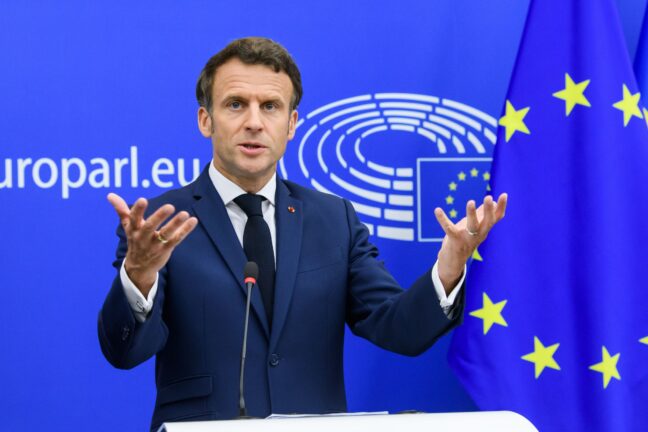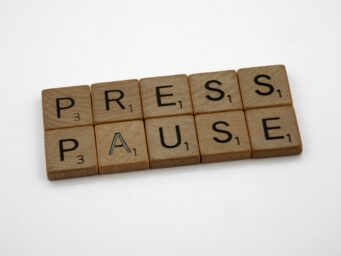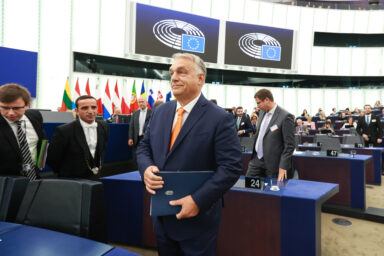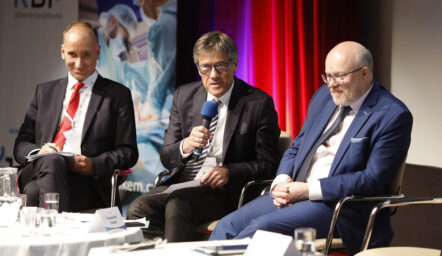President Emmanuel Macron’s pledge to boost France’s military spending up to 3.5 per cent of GDP by 2030—a near-doubling from last year’s €54bn—faces a formidable obstacle: the country’s debt-laden public finances.
As Nato prepares to endorse higher defence-spending targets at its June summit, Paris is grappling with the fiscal contradictions of its ambitions. France’s debt-to-GDP ratio, at 113 per cent in 2024, trails only Greece and Italy in the eurozone. Its budget deficit, 5.8 per cent last year, far exceeds the EU’s three per cent ceiling.
Clément Beaune, an ally of Mr Macron who leads a government think-tank, warns that France’s “worse starting point on debt” demands a “radical push” to fund defence without reneging on deficit cuts or raising taxes—already among the highest in Europe. His May report advocates spending curbs, labour reforms and EU joint borrowing, though consensus on the latter remains elusive.
Bonsai army
The stakes are high. Since 2019, France has pursued multiyear military budgets aiming to reverse post-cold war cuts. Annual spending (excluding pensions) is set to rise from €36bn in 2019 to €67.4bn in 2030—a 90 per cent jump.
Yet inflation threatens to erode these gains, while procurement challenges loom. Despite higher outlays, the army will field fewer Rafale jets (225 in 2035 versus 254 in 2021) and tanks (200 versus 222), as new weapons systems grow costlier. Critics liken France’s full-spectrum military model—emulating the US but at a smaller scale—to a “bonsai army”, ill-suited for prolonged conflict. “Sub-scale forces are incapable of prolonged war,” says Élie Tenenbaum of the Ifri think-tank.
You might be interested
Mr Macron has prioritised rebuilding military credibility since Russia’s invasion of Ukraine but faces domestic headwinds. Prime Minister François Bayrou has yet to present options for reconciling defence hikes with deficit targets, irking the Élysée.
Actions, not words
Meanwhile, aid to Ukraine and deployments to Nato’s eastern flank have strained 2024 budgets, prompting delays in paying €8bn of bills. Industry groups complain of sluggish orders despite Mr Macron’s “war economy” rhetoric. “If France wants to remain a military leader in Europe, we must set an example with actions, not words,” says Dominique de Legge, a conservative senator.
Sub-scale forces are incapable of prolonged war Élie Tenenbaim, Ifri
The president’s vision of European strategic autonomy adds another layer of complexity. He has urged EU members to embrace pandemic-style joint borrowing for defence—a non-starter for frugal northern states. Brussels’ March proposal, allowing temporary breaches of deficit caps to fund military spending, offers limited solace. Sixteen countries, including Germany and Poland, have sought exemptions. France, however, fears alarming bond markets: last year’s €59bn debt-servicing costs already exceeded defence spending, and could hit €107bn by 2029.
Paris may yet tap another EU initiative—loans for joint weapons purchases—but risks lagging peers. Germany and Poland, unencumbered by France’s debt dynamics, are racing to modernise forces. “We tend to think of ourselves as the only serious players, but that’s not true,” says Mr Tenenbaum.
Fiscal reckoning
Officials insist France’s nuclear arsenal—13 per cent of its equipment budget—ensures enduring clout. Submarines and fighter jets underpin a doctrine of strategic independence, distinct from US-reliant allies. Some neighbours, eyeing Washington’s wavering commitment to Nato, have even floated requests for extended French nuclear coverage.
Yet such assurances cannot mask the fiscal reckoning ahead. France must put its finances into order or face the risk of being placed under the supervision of the International Monetary Fund or other watchdogs, Budget Minister Amélie de Montchalin was quoted as saying by Reuters on Tuesday. “Today, we need to seize the budgetary weapon again, get our house in order, and put it back in order, because if we don’t, others will decide for us,” Montchalin told RTL radio. “There is a risk of supervision by international institutions, European institutions, our creditors,” she added when asked if France faced a risk of supervision by the IMF.
One proposal under discussion to finance France’s increased military spending is a national loan, a measure last used to reduce state debt in 1993. Mr Bayrou and Finance Minister Eric Lombard have floated the idea and also proposed setting up a defence-specific account with an interest rate set by the state, with funds invested by the state to pay for infrastructure and housing, national debt payments and other uses.
French public: Ça ira!
“I think that in the current situation, France can hardly afford to increase its public debt,” Sylvain Bersinger, chief economist at consulting firm Asteres, was quoted by Euronews. “Another solution is to try and increase growth and therefore resources and tax revenues. Typically, this means getting the French to work more by increasing the pension age. But that’s so unpopular that I don’t think it’s even possible. I’d say there’s no magic solution.”
Yet despite economic concerns, public support for increased defence spending remains high, echoing the French Revolution popular song Ça Ira (all shall be well). A recent survey conducted by Ipsos-Cesi Engineering School showed that 68 per cent of the French electorate support the idea. Even two thirds of voters supporting France Unbowed, the hard left usually wary of any military intervention, said they support the budget increase. As for supporters of the far-right party National Rally, a little more than half said they are in favour of boosting military spending.
Either way, Mr Marcon finds himself in a bind. His call for “tough choices and courage” rings hollow without a viable funding plan. With defence contractors awaiting orders and bond vigilantes circling, France’s military ambitions hinge on a precarious bet: that geopolitical urgency will override economic orthodoxy.











